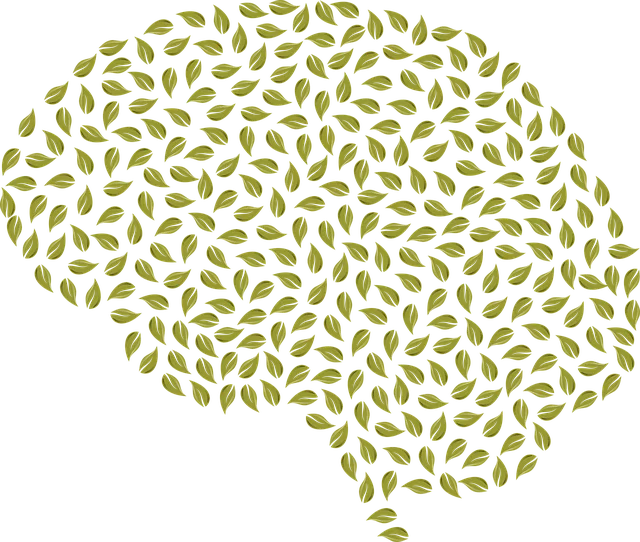Depression, a serious mental health concern, can be prevented and managed with early intervention, as emphasized by Kaiser Permanente mental health Aurora. Symptoms vary but include persistent sadness, loss of interest, and changes in appetite/sleep. Kaiser Permanente promotes self-care and resilience for professionals, offering programs focusing on healthy living, stress reduction, and cultural sensitivity to support diverse communities. Social connections are vital; peer-to-peer interactions and workshops foster support networks and prevent burnout. They advocate personalized treatments like Cognitive Behavioral Therapy (CBT) and Self-Awareness Exercises. If experiencing persistent sadness or hopelessness, reach out to Kaiser Permanente in Aurora for tailored therapy, counseling, and support.
Depression is a prevalent yet treatable condition, and proactive strategies can significantly reduce its impact. This comprehensive guide, tailored to the communities served by Kaiser Permanente mental health Aurora, explores various avenues for depression prevention. From recognizing signs and symptoms to adopting lifestyle changes and leveraging social connections, we offer evidence-based approaches. Additionally, we delve into effective therapies and provide insights on seeking professional help. By empowering individuals with knowledge, we aim to foster well-being and promote a healthier mindset.
- Understanding Depression: Signs and Symptoms (Kaiser Permanente mental health Aurora)
- Lifestyle Changes for Enhanced Well-being (Aurora, CO focus)
- The Role of Social Connections and Support Networks
- Evidence-Based Therapies for Depression Prevention
- Professional Help: When and How to Seek Assistance
Understanding Depression: Signs and Symptoms (Kaiser Permanente mental health Aurora)

Depression is a common yet serious mental health condition that significantly impacts an individual’s daily life and overall well-being. Recognizing the signs and symptoms early on is crucial for effective prevention and treatment, as highlighted by Kaiser Permanente mental health Aurora. Symptoms can vary from person to person but often include persistent feelings of sadness, loss of interest in activities once enjoyed, changes in appetite or sleep patterns, fatigue, difficulty concentrating, and thoughts of death or suicide.
The risk of depression is not limited to individuals; it also extends to professionals in the mental health sector. Kaiser Permanente mental health Aurora emphasizes the importance of self-care and resilience building for mental health professionals as part of comprehensive risk management planning. By prioritizing emotional well-being promotion techniques, such as regular therapy, exercise, and mindfulness practices, professionals can enhance their ability to support others while maintaining their own mental health.
Lifestyle Changes for Enhanced Well-being (Aurora, CO focus)

In Aurora, CO, residents have access to numerous lifestyle changes that promote enhanced well-being, with resources often provided by Kaiser Permanente mental health services. This includes adopting healthy eating habits, engaging in regular physical activity, and prioritizing quality sleep. These foundational aspects not only support overall physical health but also play a significant role in maintaining mental wellness. For instance, the vibrant community gardens and parks throughout the city encourage outdoor activities that can boost mood and reduce stress levels.
Cultural sensitivity in mental healthcare practice is another key component in Aurora’s approach to depression prevention. The diverse population of the city necessitates tailored support and services that address unique cultural needs. Mental wellness coaching programs development, coupled with stigma reduction efforts, has made professional help more accessible and welcoming for all residents. These initiatives ensure that everyone in Aurora can navigate their mental health journey with understanding and support, ultimately contributing to a happier and healthier community.
The Role of Social Connections and Support Networks

Social connections play a pivotal role in depression prevention, especially for healthcare providers navigating the challenges of their profession. According to Kaiser Permanente mental health Aurora, building and maintaining robust support networks are essential tools in managing stress and promoting well-being. Peer-to-peer connections within medical facilities can provide a safe space for professionals to share experiences, offer encouragement, and exchange coping strategies, all of which contribute to better mood management.
Healthcare providers often face unique stressors that can lead to burnout if left unaddressed. Implementing stress management workshops organized by institutions like Kaiser Permanente mental health Aurora can equip staff with effective burnout prevention strategies for healthcare providers. These initiatives encourage open dialogue, foster a sense of community, and ultimately enhance the resilience needed to confront depression and its risk factors in both personal and professional contexts.
Evidence-Based Therapies for Depression Prevention

Depression prevention strategies often revolve around evidence-based therapies that have proven effective in managing and mitigating depressive episodes. Organizations like Kaiser Permanente mental health Aurora emphasize the importance of early intervention and tailored treatment plans. Cognitive Behavioral Therapy (CBT) is a commonly recommended approach, focusing on identifying and changing negative thought patterns and behaviors contributing to depression. This therapy encourages individuals to challenge distorted beliefs and adopt healthier coping strategies.
Additionally, Social Skills Training and Self-Awareness Exercises are integral parts of depression prevention. Building and strengthening social connections can provide a support system that helps buffer against depressive symptoms. Self-awareness exercises promote introspection, allowing individuals to recognize early warning signs of burnout and take proactive measures. These evidence-based methods, when combined with proper care and guidance from mental health professionals, can significantly reduce the risk of depression and enhance overall well-being.
Professional Help: When and How to Seek Assistance

If you’re experiencing persistent feelings of sadness, hopelessness, or loss of interest in activities once enjoyed, it might be time to consider reaching out to a professional for help. Seeking support is an essential step towards managing and overcoming depression. Kaiser Permanente mental health services in Aurora offer specialized care tailored to individual needs. Therapists and counselors are trained to provide various evidence-based treatments, such as cognitive-behavioral therapy (CBT), which has proven effective in improving mood management.
Professional assistance can take many forms, including individual therapy sessions, group counseling, or even medication management. Social skills training is another valuable tool that can help individuals navigate relationships and social situations more effectively, promoting emotional well-being. By addressing underlying issues and developing coping strategies, professionals guide patients toward a path of recovery and enhanced quality of life.
Depression is a serious yet preventable condition, and with the right strategies, individuals in Aurora, CO, can significantly improve their well-being. By understanding the signs and symptoms as outlined by Kaiser Permanente mental health Aurora, making positive lifestyle changes, fostering strong social connections, and exploring evidence-based therapies, one can effectively navigate and prevent depressive episodes. Remember, seeking professional help is a sign of strength, and with the right support, prevention is key to living a fulfilling life free from depression’s grasp.






